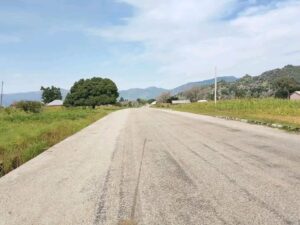
The Director-General, National Research Institute for Chemical Technology, Zaria (NARICT) Prof. Jeffrey Barminas, said that Nigeria lost 1.4 billion dollars to the importation of chemicals in 2019.
He made the disclosure at an interactive session in Abuja with the Senate Committee on Science and Technology chaired by Sen. Uche Ekwunife.
While noting that the institute had the core mandate of undertaking research in industrial chemicals, biochemicals, petrochemicals among others, Barminas said that the country was losing a lot every year.
“We are highly dependent on the importation of chemicals and chemical products into this country.
“Just in 2019 alone, this country has lost over 1.4 billion dollars on the importation of chemicals.
“And how can we handle this. We as a nation can produce chemicals and chemical products based on the natural resources that God has endowed us with.
“Because of our dependence on petroleum for a long time, we left our indigenous chemical technology and that’s why today we are losing a lot in terms of importation.”
He said that if the country got its research and infrastructure in chemical technology right, it would cover up the gap in the importation of chemicals.
The director-general further said that part of the institute’s achievements was the production of fertilizer.
“The fertilizer we have is not chemical fertilizer that affects the soil when applied over a long period. Rather it is an organic fertilizer; it is neem-based.”
He said that the country needed over two million metric tonnes of fertilizer annually, noting that the agency had produced nine trailers of fertilizer so far in 2020 with a trailer containing about 1,250 bags.
The chairperson of the committee, Ekwunife said that the era of importation of chemicals would be a thing of the past once science and technology were improved.
“Science and technology is the only ministry that cuts across all other ministries.
“We know the lot of challenges the agency faces in terms of funding, in terms of government investment in science and technology but there are also areas you need to sit up to attract government intervention,” she said.
She assured the institute of the committee’s support to enable it to sustain its activities.
“We will also do everything possible to come up with an act to give the agency a legal backing to legalise your operation because as it is, you are still operating on decrees that formed this agency,” she said. (NAN)


